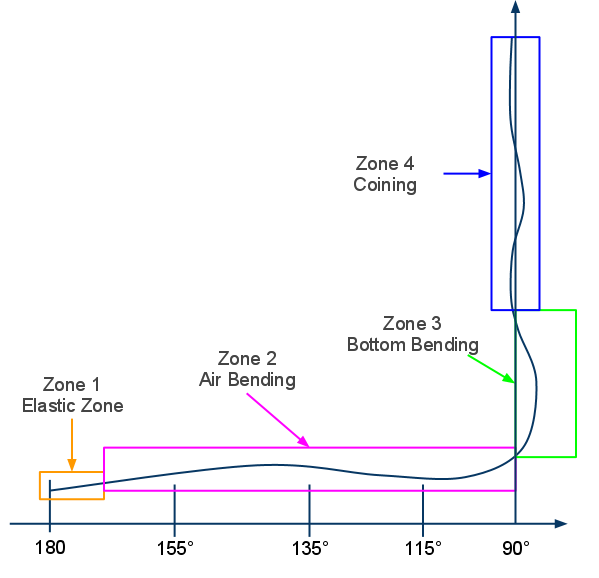Tempered spring steel is commonly referred to as high carbon steel and is useful for a number of applications including.
Bending 22 gauge spring steel sheet.
For example 18 gauge steel according to a gauge conversion chart is 0 0478 inch or 1 214 millimeter.
Our offerings also include.
In steel between 0 5 and 0 8 in.
Again the minimum inside bend radius is even larger when bending with the grain.
As an example if you want to bend 24 gauge sheet metal at a 90 angle the calculation would be.
Category thickness minimum bend bend radius.
The gauge number 18.
The minimum bend radius data shown in these charts is measured to the inside of the bend.
Blue tempered and polished spring steel.
22 gauge 0 030 0 76 mm.
Spring steels are known for their high yield strength which allows objects made of spring steel to return to their original shape after bending and forming.
22 gauge 0 030 0 76 mm 0 5 12 7mm.
The bend allowance formula takes into account the geometries of bending and the properties of your metal to determine the bend allowance.
Finally bend the sheet up by hand to the angle desired.
Since commercial sheet metal bending can be done with less concern for stresses caused during forming operation the radius can be near zero for thin sheet metal.
The bend radii listed are standard minimum if manufacturing for aircraft and aerospace applications.
0 017453 x 90 x 0 020 0 33 x 0 024 0 0438558984 inch bend allowance keep in mind that some metals are more brittle than others.
Mark a bend line and place the sheet metal on the edge of your bench.
Next place the wood parallel and slightly behind the bending line.
Clamp the wood on top of the metal to the workbench.
Thick grade 350 and 400 may have a minimum bend radius of 2 5 times the material thickness when transverse bending while longitudinal bending may require a minimum bend radius that s 3 75 times the material thickness.
Gauge and weight chart for sheet steel galvanized steel stainless steel aluminum and strip tubing sponsored links wire gauge is a measure for the size of a wire either in diameter or in cross sectional area.
The material thickness will be measured in decimal form not by the gauge number.
You will need to know your material thickness mt the bend angle b the inside radius ir and the k factor k.
Gauges are neither standard nor metric and the values are independent of those measurement systems.

